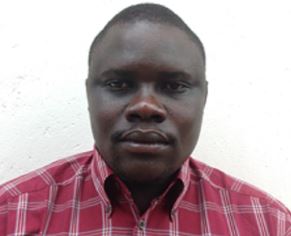A South Sudanese policy expert has backed the findings of the latest United Nations Panel of Experts report, saying it confirms long-standing concerns about the government’s lack of transparency and misuse of oil revenues.
The report accuses the government of mismanaging billions in oil revenues and failing to uphold budget transparency.
In an exclusive interview with Radio Tamazuj on Friday, Boboya James Edimond, Executive Director of the Institute of Social Policy and Research (ISPR), said the UN Panel of Experts’ 2025 report reflects long-standing concerns raised by civil society about the opaque handling of public finances.
“We have now also seen the UN Panel of Experts issuing a report which confirms the concerns we are raising,” Boboya said. “It is the same concern we are raising. The panel has just confirmed our fears.”
The report, addressed to the President of the UN Security Council earlier this month, outlines irregularities in South Sudan’s oil sector, alleging that vast revenues are siphoned off without oversight at the expense of public services such as health, education, and infrastructure.
“You can have billions of dollars coming into the country, but because they are not channeled into services that benefit people, you don’t see the results,” Boboya noted. “If we have a UN report confirming this, then where is the accountability system to act on it? Why are there no investigations or parliamentary reviews?”
He urged South Sudanese leaders, lawmakers, and international partners to treat the report as a critical warning, especially ahead of the country’s long-awaited general elections scheduled for 2026.
“This should be a wake-up call to demand budget transparency and traceability of oil revenues,” he said. “Without reforming how public finances are managed, elections alone will not change people’s lives.”
He further stressed that mismanagement of oil money is undermining the 2018 peace deal and deepening public distrust.
“Public funds are being misused in a way that continues to fuel mistrust and instability. This isn’t just an economic issue, it’s a peace issue,” Boboya warned.
As South Sudan prepares to roll out its SSP 5.2 trillion (USD 1.1 billion) 2025/26 national budget, policy experts warn that unless urgent reforms are made, the new fiscal plan could worsen poverty, weaken service delivery, and stall peace implementation.
Boboya highlighted findings from a newly released report by the Institute of Social Policy and Research, which calls for people-centered budgeting and stronger fiscal accountability.
“This budget should not be business as usual. It must reflect the needs and aspirations of the people, not just institutions,” he said.
The ISPR report titled “Enhanced Citizen Participation in the Budget Process, Transparent and Accountable Financial Management, and Equitable Allocation of Public Resources toward Critical Sectors in South Sudan” outlines concerns about underfunded health systems, growing debt, and worsening inequality.
Boboya pointed to alarming statistics: 9.3 million people, over 60% of the population, need humanitarian aid, 6.4 million face severe food insecurity, 2 million children are malnourished, including 650,000 at risk of acute malnutrition, and only 8% of South Sudanese are economically stable.
“How can a government talk about taxation when 92% of its people live in poverty?” Boboya asked.
The report also warns that a weak local labor market and overdependence on foreign labor are stifling opportunities for youth.
East African comparisons paint a grim picture.
While neighbors like Kenya and Rwanda allocate budgets upwards of USD 10–33 billion with clear development targets, South Sudan’s plan lacks focus on key areas such as agriculture, energy, and jobs.
The think tank recommends prioritizing peacebuilding and reconciliation, food security and agriculture, health, education, water services, local government empowerment, electoral and constitutional processes, and youth employment and climate resilience.
“This is not just about numbers. It’s about stability, services, and hope,” Boboya said. “If we don’t redirect our financial priorities, the peace agreement may remain a paper promise.”
As the country prepares for a crucial election year, he emphasized that a reform-driven, pro-citizen budget is essential to avoid slipping back into crisis.
“The choice is clear: Either we build a budget that builds peace or continue cycling through crisis after crisis,” he stated.




